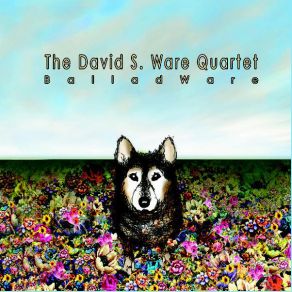BalladWare
Download links and information about BalladWare by David S. Ware. This album was released in 2006 and it belongs to Jazz, Avant Garde Jazz, Avant Garde Metal genres. It contains 7 tracks with total duration of 01:09:17 minutes.

|
|
|---|---|
| Artist: | David S. Ware |
| Release date: | 2006 |
| Genre: | Jazz, Avant Garde Jazz, Avant Garde Metal |
| Tracks: | 7 |
| Duration: | 01:09:17 |
| Buy it NOW at: | |
| Buy on iTunes $9.99 | |
Tracks
[Edit]| No. | Title | Length |
|---|---|---|
| 1. | Yesterdays | 9:18 |
| 2. | Dao | 10:34 |
| 3. | Autumn Leaves | 7:50 |
| 4. | Godspelized | 8:29 |
| 5. | Sentient Compassion | 8:21 |
| 6. | Tenderly | 9:16 |
| 7. | Angel Eyes | 15:29 |
Details
[Edit]A ballads album is not something one might associate with David S. Ware, the fiery tenor saxophonist. It was recorded in 1999 as Ware was making a series of albums for Aum Fidelity and Japan's DIW label — in fact, many of the tracks on this set appeared in different versions on those recordings. It's a wonderful thing that this set produced by Steven Joerg (owner of Aum Fidelity) was licensed by Thirsty Ear for release. The seven tracks that appear on this release, split between original compositions and standards, offer a very different side of the saxophonist, without sacrificing his iconic individuality. They are forward-thinking and utterly passionate — albeit in a lower-key manner. Ware is ably assisted by the ubiquitous William Parker on bass, pianist Matthew Shipp, and Guillermo Brown on drums. Since restraint is not often associated with this group of musicians, the sensitivity with which they reinvent nuggets like "Yesterdays," "Autumn Leaves," and "Tenderly" is not only noteworthy — it may just make the argument for the standard being a body of music that should be utterly re-explored harmonically to reveal the "otherness" in it, the place where it breaks and turns back on itself to offer some new meaning. "Autumn Leaves" was performed first on Ware's Third Ear Recitation album for DIW in 1992 with Shipp, Parker, and drummer Whit Dickey. His approach here melds Ben Webster and Archie Shepp into his own sound world where chords, scales, and melodies are turned not so much inside out, but are expanded upon to extend the tune's breath — much like Charles Olson's notion in his 1949 essay in which he spoke of the line in poetry to be carried out to the end of that writer's single breath. Shipp offers a solid ground by extrapolating his chord voicings to include not only the melodic frame, but its outside harmonic as well. In fact, his playing here is so lovely and tender that it's breathtaking.
Ware's own compositions, such as "Dao," present utterly new things. "Dao" takes a modal approach wherein Parker's bass and Shipp's expansive voicings offer the notion of playing in just intonation — which is not being done, but its feeling across a melody line that begins from the root at all times is deeply affecting. "Godspelized" touches on Albert Ayler's gospel approach, but moves past it and toward the center of the tune's "moan." Here is the sense of poetry that Ware always contains within his playing, but it is proffered slowly, out of a blues heart. His scalar notions are all based around that solid center, where the "ground" of his melodic playing begins and (for most of us) ends as well, after bringing in an entirely different sonic universe. Another notable thing about this wonderful set is Guillermo Brown's sensitivity as a drummer. His notion of time is one that moves out to push the boundary of the circle but always comes back. The circle and what it contains grow larger, leaving all sorts of room for the other players to interact, and he never, ever overplays. Like Billy Higgins playing with Charles Lloyd, he dances his beats, almost as offerings to the ensemble to play off of. This is a gorgeous and moving recording, one that may show Ware's snobbish, academic detractors that it's time to shut up and listen, but it doesn't matter. What's here is a document of another of Ware's many facets as a leader, soloist, and composer. For the curious, it is also a solid introduction to the man and his work. This is the sound of tenderness and an open heart: come on in.